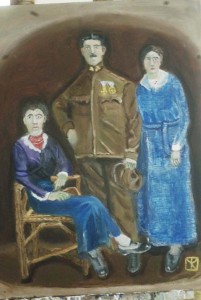[Article by Robbie Fraser]
At Synchronized Chaos, we like to focus on up and coming artists as often as we feature those who have an established place in their field. For this issue we’ve decided to turn that focus to Brent Vickers, a recent college graduate from Texas State University majoring in English, and an aspiring writer. While Vickers has a style that is uniquely his own, his story is one that many Synchronized Chaos readers are likely to find relatable. While clearly displaying his ability through the written word, Vickers is still searching for a firm place in his cultural field – the proverbial “big break” of every hopeful artist. He is a young and talented writer that is nonetheless confronting an uncertain future.
Here, we have featured a few poems that Vickers selected as a small sampling of his work, as well as a brief Q&A exploring his development as a writer, and more importantly, what the future may hold for him. With some of his poetry and fiction already published, and the promise of more to come, Vickers has managed to venture further down the road to success than the vast majority of those who have made similar journeys. With a screenplay currently in development, and an independent production company already looking to purchase the rights, it may be only a matter of time before Vickers finds his destination within view.
Synchronized Chaos: How long have you been writing poetry?
Brent Vickers: Since I was around fourteen or so.
SC: What poems or poets first inspired you?
BV: John Keats and Edna St. Vincent Millay.
SC: What is your favorite poem? Favorite line?
BV: He wishes for the Clothes of Heaven by W.B. Yeats; don’t really have a favorite line. If i had to choose I’d probably say “though lover’s be lost, love shall not/and death shall have no dominion” by Dylan Thomas or “we are the music makers and we are the dreamers of dreams” by Arthur O’Shaughnessy.
______________________________________________________________________________________
Robbie Fraser is an associate editor for Synchronized Chaos Magazine. Fraser may be reached at robbiedfraser@gmail.com.
______________________________________________________________________________________

